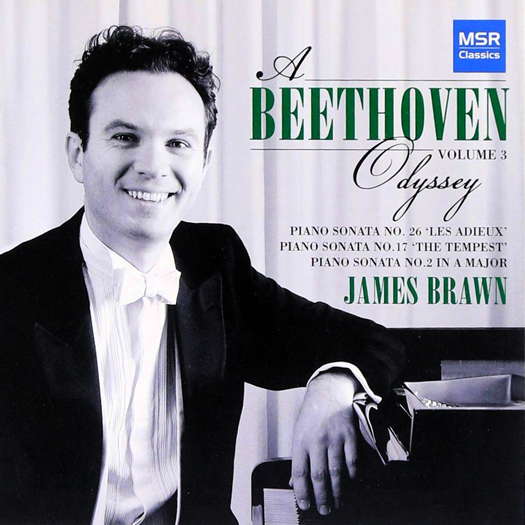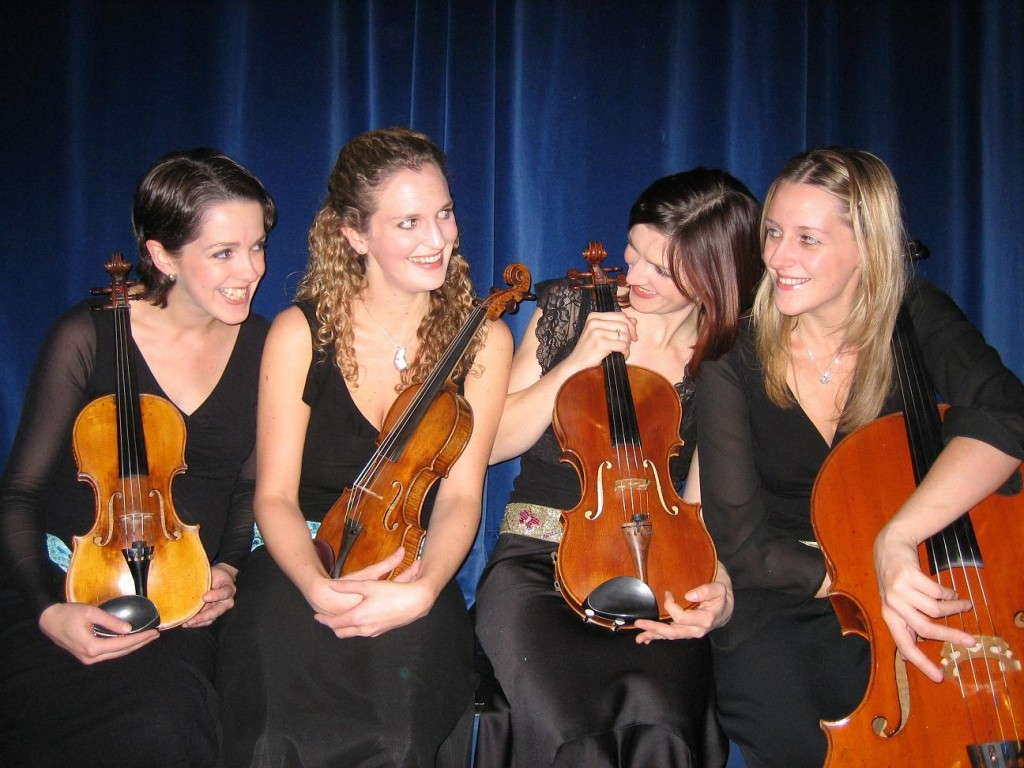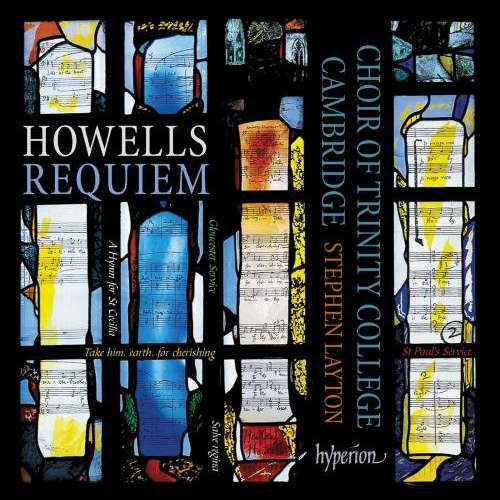 SPONSORED: CD Spotlight. Masterful Handling - Volume 3 of James Brawn's Beethoven, praised by Andrew Schartmann.
SPONSORED: CD Spotlight. Masterful Handling - Volume 3 of James Brawn's Beethoven, praised by Andrew Schartmann.
All sponsored features >>
A Gesture of Defiance
MIKE WHEELER listens to Haydn, Bartók and Schubert, played by the Iuventus String Quartet
Derby Chamber Music is re-building its concert activities steadily, partly to fit in with the Covid requirements of its regular venue, Derby University's Multi-Faith Centre. So the new season, of four rather than the usual eight concerts, began with reduced audience numbers, socially-distanced seating, and none of the usual fund-raising stalls – Derby, UK, 15 October 2021.
But there was nothing low-key about the performances by the Iuventus Quartet, whose cellist is DCM's patron, Katherine Jenkinson. In the first movement of Haydn's String Quartet Op 76 No 4, the players' gentle way with the two main themes was offset with energetic playing in the linking material that did not make it sound hard-driven. A pity, though, that they omitted the repeat of the opening section. In the second movement, amiability and underlying seriousness were kept in perfect balance, and the moments when the upper strings play without cello support were deliciously airborne. For the third movement Haydn may have used the conventional heading 'Minuet', but the Iuventus Quartet brought out its more rustic, ländler-like qualities, and made the Trio section both mysterious and even more rustic. The finale was good humoured and easy-going, with plenty of space for the quicker tempos later which, when the moment came, raced away with no inhibitions.

The Iuventus String Quartet. From left to right: Nicky Sweeney, violin 2, Ruth Rogers, violin 1, Rebecca Low, viola and Katherine Jenkinson, cello
Bartók's String Quartet No 4 opens in a stern frame of mind, but the influence of Hungarian folk music is here as well, not least in the stamping dance figures. The lyricism and the withdrawn moments were sympathetically shaped, while the emphatic ending was dispatched forcefully. We were drawn compellingly into the secretive world of the second movement's spectral dance, with the instruments muted, and a deftly-handled sudden evaporation at the end. The upper strings succeeded in being both immobile and expressive in their backdrop to Katherine Jenkinson's powerful evocation of the folk-clarinet known as the tárogató. Leader Ruth Rogers contributed some delectable birdsong, while second violinist Nicola Sweeney and viola-player Becky Low seemed to relish exchanging roles in solos that were, respectively, dark and husky on the one hand, light and graceful on the other. The pizzicato fourth movement was delivered with pinpoint accuracy, and with a really sharp edge to the sound when Bartók asks for strings to snap against finger-boards. The finale epitomised the way the whole performance cultivated a strident tone when called for, with no superfluous gloss on the sound. The dance rhythms had raw energy, and the various changes of mood were navigated with minimal fuss, to maximum effect.
The performance of Schubert's A minor Quartet, D 804, was all the more eloquent for being similarly free from over-romanticised indulgence. The first movement's song-like opening was graceful in a way that accommodated the music's forceful outbursts. A couple of Bruckner-like moments underlined just how far Schubert's influence spread. The second movement re-cycles the B flat entr'acte from his music for the play Rosamunde, here given an introspective character that threw into relief the strenuous, turbulent passages later. Like Haydn, Schubert called the third movement a minuet, an equally inappropriate heading for what is really a valse triste, as this performance made clear. Even the trio section's supposedly lighter mood was noticeably clouded. The finale's emotional ambivalence was faced squarely: has Schubert found a way through, or is he just putting a jolly face on? The jog-trot rhythms were buoyant, the running figures were relaxed, but the big interruption near the end was properly startling; the shock was even greater the second time. The final cadence was not so much a happy ending as a gesture of defiance.
Copyright © 13 November 2021
Mike Wheeler,
Derby UK




